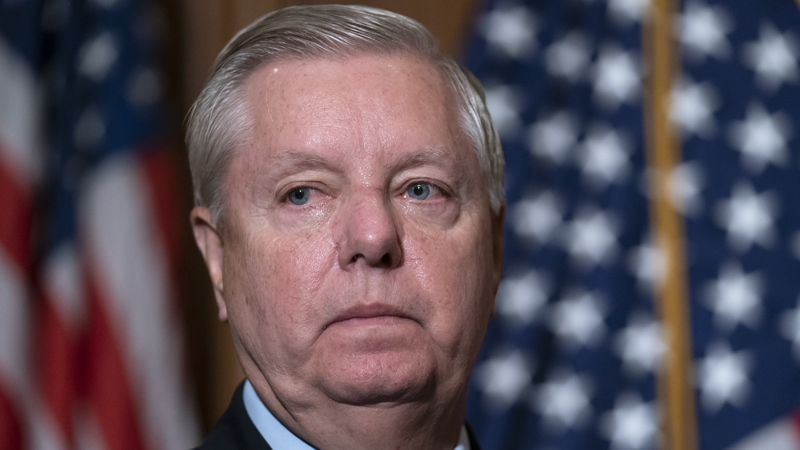“I Will Object” Lindsey Graham Vows to Block Supreme Court Ethics Legislation

J. Scott Applewhite/AP
Sen. Lindsey Graham (R-SC) has announced his intention to block Democratic efforts to institute ethics reforms at the Supreme Court, declaring, “I will object.” This development follows comments from Senate Majority Whip Dick Durbin (D-Ill.), who chairs the Senate Judiciary Committee.
Durbin stated on Tuesday that he would make a unanimous consent request to pass Supreme Court ethics legislation that the committee advanced last July. However, Graham’s objection means the bill cannot move forward without 60 votes to overcome a filibuster, requiring support from nine Republicans alongside all Democrats.
NBC News reported, “The South Carolina senator’s comments come after Senate Majority Whip Dick Durbin, D-Ill., who chairs the Senate Judiciary Committee, said earlier on Tuesday that he would make a unanimous consent request to pass Supreme Court ethics legislation that the panel advanced last July. The South Carolina Republican’s objection means the bill will not be able to move forward because any senator can block a request.”
Senate Majority Leader Chuck Schumer (D-N.Y.) is considering bringing the measure up for a vote under the normal process, despite the challenges. Durbin expressed skepticism about the legislation’s prospects but emphasized the importance of recording both parties’ positions. “I think I know the outcome, but we’re going to go through the exercise to make sure that both parties are on the record,” Durbin told reporters.
The push for Supreme Court ethics reforms has gained momentum following a series of reports highlighting serious ethical concerns. Justices Clarence Thomas and Samuel Alito have faced scrutiny for accepting lavish gifts and vacations from right-wing billionaires with cases before the court. Additionally, reports have surfaced about the display of MAGA and Christian nationalist symbols on Alito’s property while he was unsuccessfully urging the court to challenge Pennsylvania’s certification of former President Donald Trump’s 2020 election loss.
In response to some of these criticisms, the Supreme Court adopted a new code of ethics at the end of last year. However, this code has been criticized as inadequate because it still requires justices to self-police their behavior and make the final decision on recusal in cases of conflicts of interest.
The debate over Supreme Court ethics reform underscores the ongoing tension between maintaining judicial independence and ensuring accountability within the highest court in the land. As the legislative battle unfolds, the outcome will significantly impact public trust in the judicial system and the perception of impartiality within the Supreme Court.


